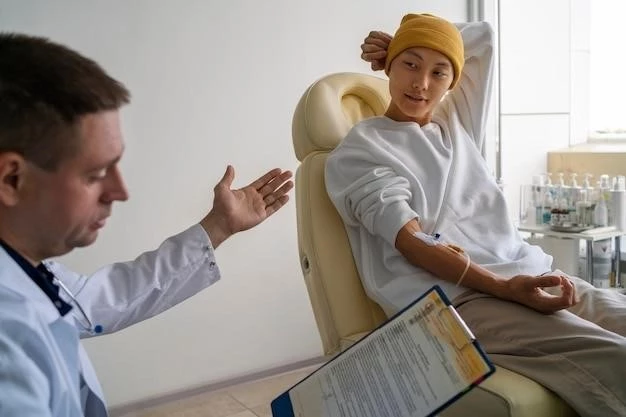Overview of Beemer-Ertbruggen Syndrome
Get an overview of Beemer-Ertbruggen Syndrome including its causes, symptoms, diagnosis, treatment, and more․
Description⁚
Beemer-Ertbruggen Syndrome is a rare genetic condition characterized by developmental delays, intellectual disability, distinctive facial features, skeletal abnormalities, and potential heart defects․ Individuals with this syndrome may require specialized care and interventions to address their unique needs․ It is important to consult with healthcare professionals for proper evaluation and management․
The genetic mutation associated with Beemer-Ertbruggen Syndrome is not yet fully understood, but it is believed to involve alterations in specific genes that play a critical role in development․ Genetic testing can provide more detailed information about the specific genetic changes present in individuals with this syndrome․ Consult a genetic counselor or medical genetics specialist for further guidance and information․
Causes of Beemer-Ertbruggen Syndrome
Discover the genetic factors and underlying mechanisms contributing to the development of this syndrome․
Genetic Mutation⁚
Individuals with Beemer-Ertbruggen Syndrome often have genetic mutations affecting specific genes critical for normal development․ These mutations can lead to the characteristic features and challenges associated with the syndrome․ Genetic testing is essential for identifying these mutations and guiding treatment and management strategies․ Seek guidance from genetics professionals for comprehensive evaluation and support․
Symptoms and Signs of Beemer-Ertbruggen Syndrome
Learn about the distinctive physical and developmental indicators of Beemer-Ertbruggen Syndrome․
Physical Symptoms⁚
Common physical symptoms of Beemer-Ertbruggen Syndrome may include facial anomalies, skeletal abnormalities, heart defects, and growth delays․ Regular medical evaluations can help monitor these symptoms and ensure appropriate interventions are in place․ Consult healthcare professionals for personalized care and support tailored to address these physical manifestations․
Developmental Delays⁚
Individuals with Beemer-Ertbruggen Syndrome commonly experience developmental delays affecting motor skills, cognitive abilities, and speech development․ Early intervention programs and therapies can help address these delays and promote optimal growth and learning․ Collaborate with healthcare providers to create a comprehensive developmental plan tailored to the individual’s needs․
Diagnosis and Genetic Testing for Beemer-Ertbruggen Syndrome
Undergo comprehensive evaluation and genetic testing to confirm and better understand this syndrome․
Clinical Evaluation⁚
A thorough clinical assessment is crucial for diagnosing Beemer-Ertbruggen Syndrome․ This evaluation may include physical exams, developmental screenings, imaging studies, and cardiac assessments to identify characteristic features and associated complications․ Collaborate with healthcare providers specializing in genetic disorders for accurate diagnosis and tailored care plans based on individual needs․
Genetic Testing⁚
Genetic testing plays a key role in confirming Beemer-Ertbruggen Syndrome by identifying specific genetic mutations associated with the condition․ This testing can provide valuable information to guide treatment decisions, assess potential risks, and offer insight into the prognosis․ Consult with a genetic counselor or medical geneticist to discuss the benefits and implications of genetic testing for personalized management strategies․
Treatment Options for Beemer-Ertbruggen Syndrome
Explore effective management strategies tailored to address the challenges of this syndrome․
Management Strategies⁚
Managing Beemer-Ertbruggen Syndrome involves a multidisciplinary approach focusing on addressing developmental delays, intellectual disabilities, and other associated symptoms․ Treatment may include therapies such as physical, speech, and occupational therapy, educational interventions, and medical care to optimize quality of life․ Collaborate with a team of specialists to develop a comprehensive and individualized treatment plan for the best outcomes․
Multidisciplinary Approach⁚
Effective care for Beemer-Ertbruggen Syndrome involves a team of specialists including geneticists, pediatricians, therapists, educators, and psychologists․ This collaborative approach ensures comprehensive evaluation, tailored interventions, and ongoing support for the individual and their family․ Coordination among healthcare providers is essential to address the diverse needs of those affected by the syndrome․ Embrace the benefits of a multidisciplinary team for optimal management and care․

Prognosis and Life Expectancy of Beemer-Ertbruggen Syndrome
Gain insights into the potential outlook and expectations regarding this syndrome․
Prognosis⁚
The prognosis for individuals with Beemer-Ertbruggen Syndrome varies based on the severity of symptoms and the presence of associated health issues․ Early diagnosis, appropriate interventions, and ongoing support can improve quality of life and outcomes․ Regular monitoring by healthcare professionals, adherence to treatment plans, and access to supportive resources are vital in managing the condition effectively․ Stay informed and engaged in the care process to optimize the prognosis for individuals with this syndrome․
Life Expectancy⁚
The life expectancy of individuals with Beemer-Ertbruggen Syndrome can vary depending on the severity of symptoms and associated complications․ Regular medical care, early intervention, and ongoing support can positively impact life expectancy․ It is important for individuals and families to work closely with healthcare providers to address health concerns, manage symptoms effectively, and enhance overall well-being; Stay proactive in seeking specialized care and accessing resources to optimize health outcomes and quality of life․
Research Advances in Beemer-Ertbruggen Syndrome
Stay informed about the latest research developments and innovations in understanding and treating this syndrome․
Current Research⁚
Ongoing research on Beemer-Ertbruggen Syndrome focuses on discovering new genetic insights, understanding the underlying mechanisms of the condition, and exploring potential targeted treatments․ Stay updated on clinical trials, genetic studies, and emerging therapies that may offer promising advancements in managing this rare syndrome․ Engage with healthcare professionals and research institutions to learn about participating in research initiatives and contribute to expanding knowledge and treatment options․
Treatment Innovations⁚
Exciting advancements in treating Beemer-Ertbruggen Syndrome include novel therapeutic approaches, precision medicine techniques, and targeted interventions tailored to the individual’s genetic profile․ Stay informed about innovative treatments such as gene therapies, personalized medications, and specialized therapies aimed at improving outcomes and quality of life․ Consult with healthcare providers to explore cutting-edge treatment options and participate in clinical trials to access the latest innovations in managing this complex syndrome․
Support and Resources for Individuals with Beemer-Ertbruggen Syndrome
Discover valuable support networks and resources tailored to meet the needs of those with this syndrome․
Support Groups⁚
Joining support groups can provide invaluable emotional support, information sharing, and connections with others facing similar challenges related to Beemer-Ertbruggen Syndrome․ These groups offer a safe space for individuals and families to share experiences, receive encouragement, and access resources for coping with the syndrome’s complexities; Engaging with support groups can foster a sense of community and empower individuals to navigate their journey with understanding and compassion․
Caregiver Support⁚
Caregivers of individuals with Beemer-Ertbruggen Syndrome play a crucial role in ensuring their well-being․ Accessing caregiver support programs can provide practical guidance, emotional respite, and valuable resources to help caregivers navigate the complex challenges of caring for a loved one with this syndrome․ By connecting with support networks, caregivers can find understanding, share experiences, and access information to enhance their caregiving journey and maintain their own well-being․
